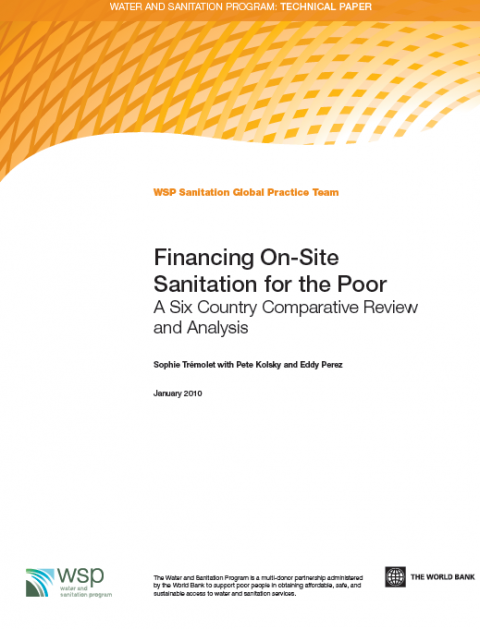Financing on-site sanitation for the poor - A six country comparative review and analysis
Tremolet, S., Kolsky, P., Perez, E. (2010)

Published in: 2010
Publisher:
Water and Sanitation Program (WSP), World Bank
Author:
Tremolet, S., Kolsky, P., Perez, E.
Uploaded by:
SuSanA secretariat
Partner profile:
common upload
5959 Views
66 Downloads
Location of library entry
Content - Summary
The present study offers evidence on alternative financing approaches for on-site household sanitation from case studies in six countries: Bangladesh, Ecuador, India, Mozambique, Sénégal, and Vietnam. This evidence can help identify the best-performing approaches and the relevant
factors and issues to consider in designing a sanitation financing strategy. The study systematically compares alternative financing approaches based on a set of common indicators, including in terms of the effectiveness in the use of public funds and targeting. The team chose to focus on those projects recognized as successes to obtain a reasonable
representation of the better practices in sanitation programs. The study identified a number of useful examples and tentative lessons about finance which should help to advance the design of sanitation finance at the outset of a project. Replicating such experiences will require a better understanding of what drives household investment and what the key constraints limiting such investment are, in both financial and non-financial terms.
Bibliographic information
Tremolet, S., Kolsky, P., Perez, E. (2010). Financing on-site sanitation for the poor - A six country comparative review and analysis. Water and Sanitation Program (WSP), World Bank
Filter tags
East Asia & Pacific English Latin America & Caribbean Market development (WG2) Sub-Saharan Africa














